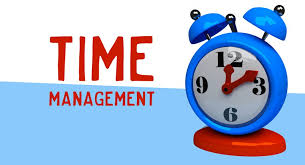
| Achieving effective time management is something that almost everyone strives for. But it can be much harder than it sounds. The frustration many people feel when they cannot accomplish what they want in a set amount of time can be overwhelming. However, learning a few simple tricks and sticking to what works for you can make all the difference in accomplishing your goals of time management. Think Smart to Succeed. In the November 30, 2001, issue of Fort Worth Business Press, Irwin Pollock states that “If you want the highest return on your investment (your time), make sure you’re only doing those things that will help you achieve your goals (in the least amount of time).” Simply put, thinking smart and fast helps you achieve as much as possible in your allotted amount of time. To do this, an individual can implement a few simple tricks that can help the process along. Make a List Time-Management-Skills-tips. One of the most important aspects of time management is to make a list of what needs to be done during the day. This should be the very first thing that a person does in the morning. However, some people make lists both in the morning and the afternoon (before leaving the office). That way, they are always on track and know what they need to do. As each goal is achieved, they can mark it off the list. By having one’s goals already written down, there is no need to waste precious time thinking about what needs to get done. Use a Schedule. Many people rely on their schedules to get them through their days. The October 30, 2008, edition of Healthcare Risk Management reports that “one of the most beneficial things you can do is block your time off of your schedule.” Today’s schedules exist on cell phones, BlackBerries and other computerized environments. These schedules tell people where and when they need to be somewhere. Schedules can help keep you on track but if you solely use electronic devices to keep you on schedule, you can become dependent on the device. If the device fails and you have not kept a backup copy of the schedule, it could wreak havoc in your life. Remember to always back up your schedule to another computer or simply keep a handwritten copy of it for safe keeping. Eliminating Distractions. One of the biggest ways to lose time is to get distracted. Many things can cause distractions such as telephones or questions from co-workers. Knowing what your individual distraction is can help you eliminate it. For example, if the distraction is phone calls, let the call go to voicemail. If you are distracted by interruptions from other staff members, you may need to keep your door closed. Staying on track and eliminating distractions that cause you to get off schedule can be challenging at times , but if you can keep distractions to a minimum, then you will be more likely to accomplish your long-term goals. Set a Time Limit. Finally, setting a time limit for each activity during the day can be useful. The October 30, 2008, edition of Healthcare Risk Management reports that “allotting a specific amount of time will enable you to concentrate on just the matter at hand without concerning yourself with the clock or other things around you.” Setting a time limit for each activity forces you to move on when the time is up. Using the time limit rule makes it possible to stay on track and not keep any other appointments waiting. Final Thoughts. Strategically using some simple tools can make all the difference when trying to stay on track and managing your time effectively. Time management is something that is different for everyone and it must be learned. You have to work at time management for it to be effective. Keeping yourself on track helps reduce your overall stress during the day. At the end of the day, when you’ve achieved your goals, it can be a very gratifying feeling. Contributed by Kristie Jernigan |

Kristie Jernigan











